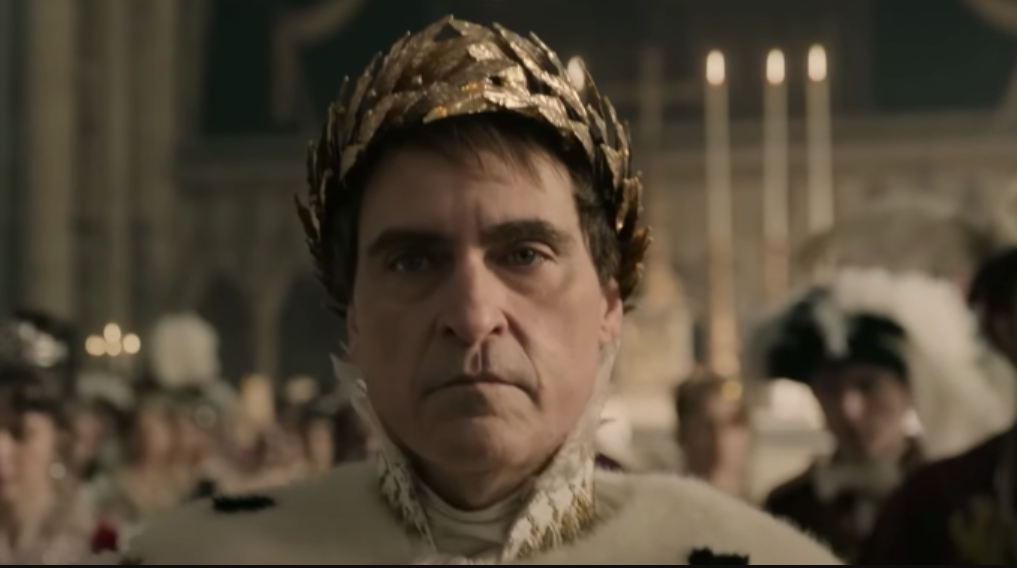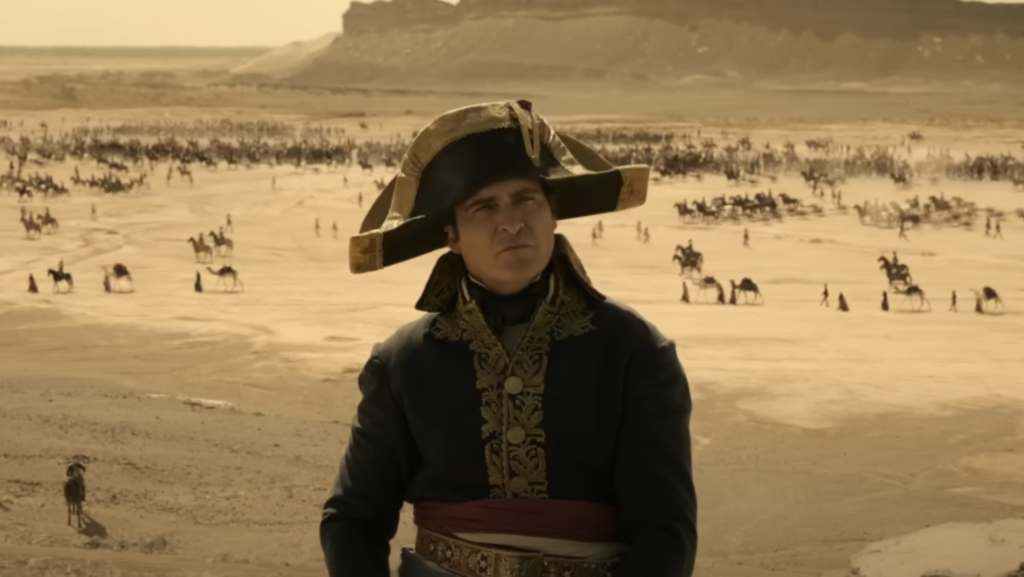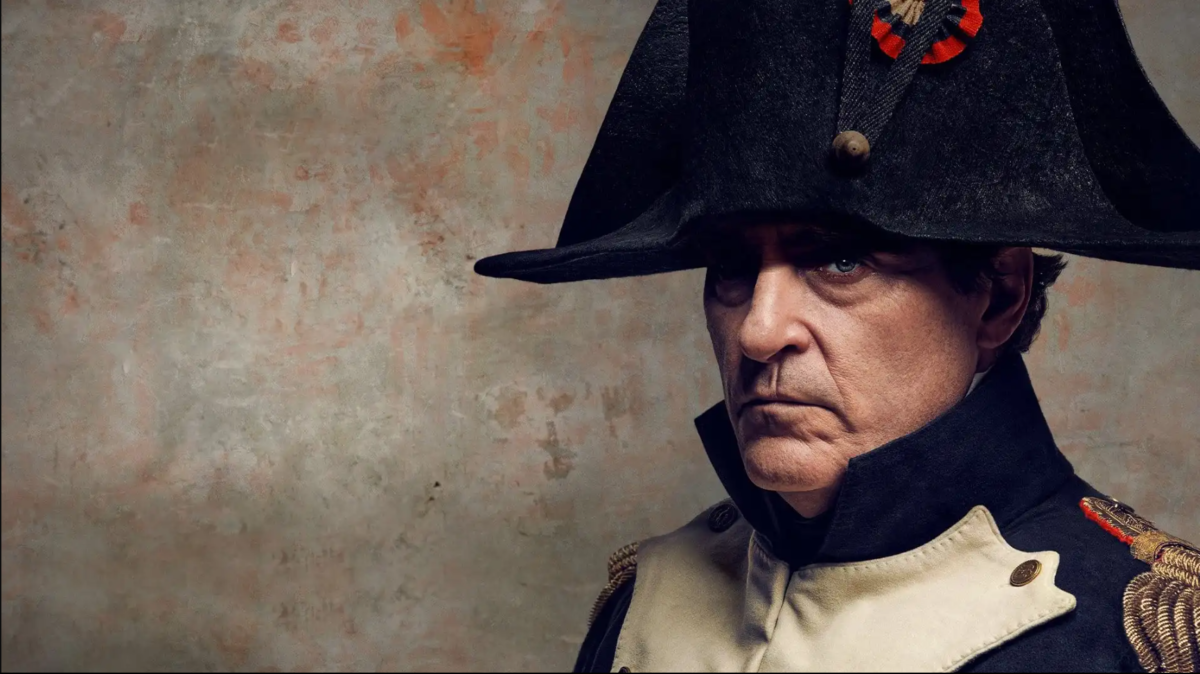Midway through the tumultuous Battle of Waterloo, my patience for Napoleon’s portrayal grows wearisome. How is it possible to transform the narrative of one of history’s most brilliant minds into a dreary and lackluster cinematic experience? Ask Ridley Scott.
A quick search for the movie reveals a plethora of articles detailing the historical inaccuracies liberally strewn throughout the film. The intentional omission of pivotal moments in Bonaparte’s life serves as a revealing glimpse into Scott’s overarching narrative agenda. Instead of delving into the extraordinary brilliance that allowed Napoleon to outmanoeuvre Europe’s greatest armies or exploring the transformative reforms that reshaped French society, Scott fixates on depicting Napoleon through the lens of British villainy. The focus is not on the nuanced facets of Napoleon’s mind, but rather on the ‘redundancy’ of his wars, resulting in the deaths of over three million people. Nuance is conspicuously absent as Joaquin Phoenix’s portrayal reduces the Emperor of France to a stumbling fool, incapable of remaining alert during strategic discussions and whining like a dog at his wife’s feet, begging her for sex.

Critics have aptly dubbedNapoleon a satire of the era it attempts to depict, a sentiment I wholeheartedly echo. The ill-timed jokes, often at Napoleon’s expense, disrupt the narrative flow. The gratuitous focus on war’s gore, ostensibly aimed at unsettling viewers and prompting reflection on the senselessness of bloodshed, is juxtaposed with scenes of honestly disturbing intimacy between Napoleon and Josephine, leaving a perplexing and distasteful aftertaste.
The battle sequences are an incongruous mishmash of medieval warfare, musketry, and hints of trench warfare reminiscent of the World Wars. The chaotic result sees Napoleon miraculously transmitting orders across vast distances through flag-waving and distant shouts, devoid of any semblance of historical formations or tactics. The cinematic spectacle is reminiscent of the Battle of the Bastards in the Game of Thrones; it may be visually pleasing, but under scrutiny, it unravels into absurdity. The absence of historical consultation is glaringly apparent, showcasing Scott’s disregard for accuracy.

Yet, Napoleon’s most egregious shortcoming lies in its steadfast refusal to unveil any hint of the charm and intelligence that propelled its titular character to the pinnacle of French rule. The audience is left in the dark regarding the reasons why millions willingly rallied under his banner or how he orchestrated the return to power without armed conflict. When Napoleon learns that his wife has taken another lover, he unexpectedly abandons an entire campaign in Egypt, stumbling through the aftermath like a bumbling buffoon. While it’s true that Josephine held a significant place in his heart, reducing all of Napoleon’s remarkable achievements to a mere quest for her love is a profound injustice. His actions and legacy are far more intricate and deserve a more nuanced understanding than being overshadowed by personal matters. Every action lacks rational justification, and the consequences, if explored, lean predominantly toward the negative. Scott’s personal vendetta against Napoleon is palpable, but if mockery was his intent, he has much to learn from the poignant satire of Taika Waititi’s JoJo Rabbit.


1 Pingback